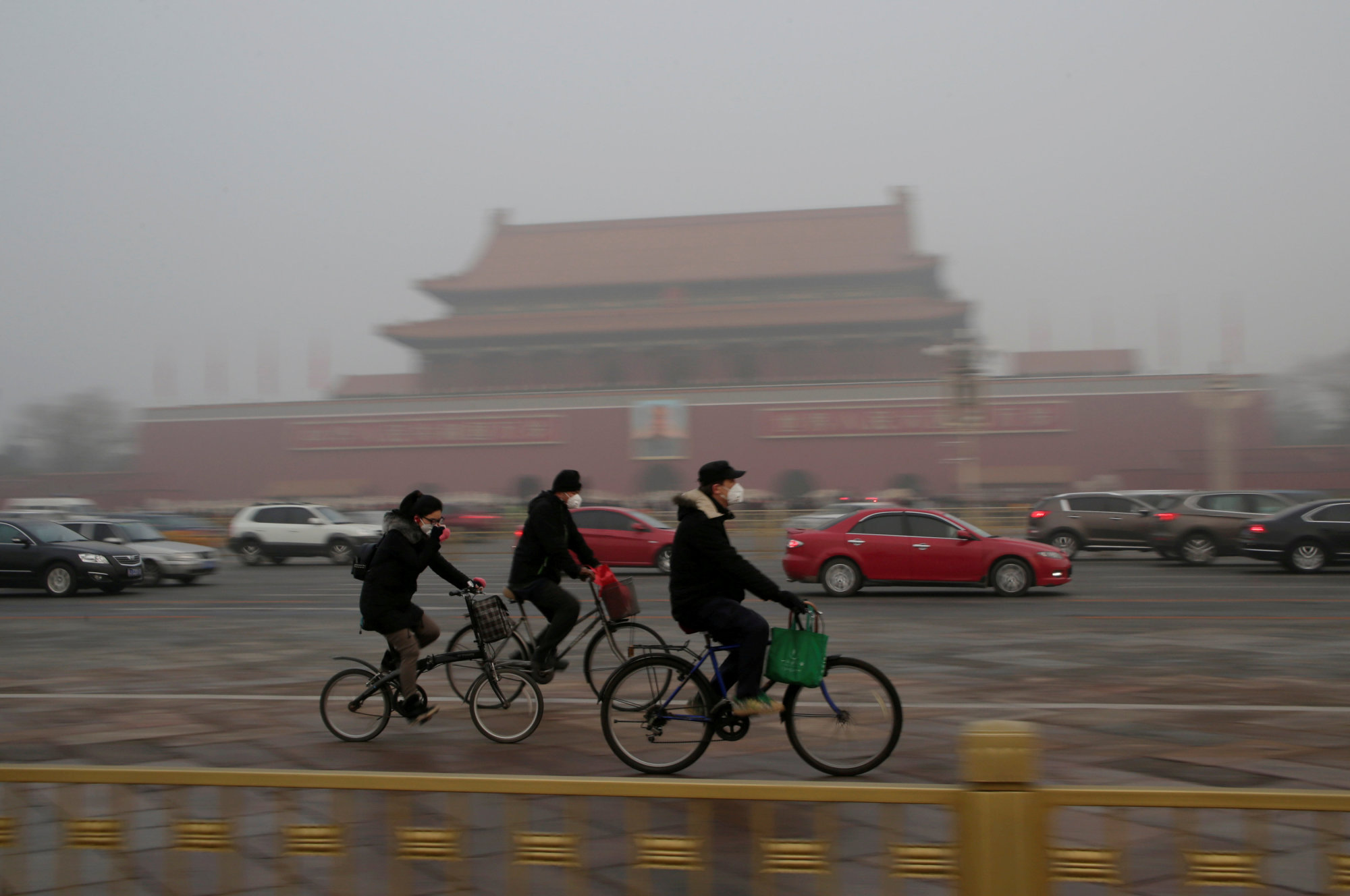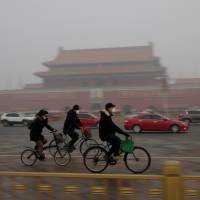Beijing's air quality target for 2017 is more than double the acceptable standard set by the World Health Organization, the mayor announced on Saturday in the wake of weeks of hazardous air pollution in the Chinese capital.
"We will work hard to keep PM2.5 at an annual average of around 60 micrograms per cubic meter," Beijing Mayor Cai Qi said during his delivery of the city's annual work report at the opening of the Beijing People's Congress on Saturday.
PM2.5 refers to damaging air particles so small they can pass through humans' lungs to affect other organs.
The acceptable PM2.5 annual average set by the WHO is 20-25 micrograms per cubic meter.
Beijing's air quality likely improved 9.9 percent in 2016, the municipal government said in a document, and PM2.5 likely sat at an annual average of 73, better than the 2016 target of around 76.6.
But smog has engulfed Beijing and large swaths of the north and center of the country for days at a time in recent weeks, disrupting flights, port operations and schools.
Environmental authorities on Saturday said bad air would strike provinces around Beijing in the coming days, the state news agency Xinhua reported.
A week earlier, Beijing said it would establish a police force to deal specifically with environmental offenses as part of efforts to clean up its air and crack down on persistent polluters.


















With your current subscription plan you can comment on stories. However, before writing your first comment, please create a display name in the Profile section of your subscriber account page.